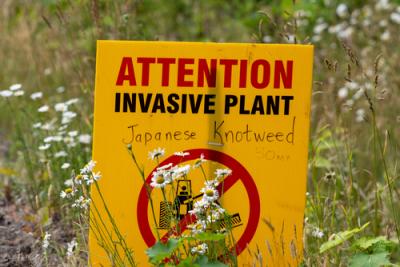In July, here at Environet UK, we transferred 100% ownership of the company to our employees, in the form of an Employee Ownership Trust (EOT).
The EOT holds a controlling stake in the company on behalf of its employees and over the next few years, through operating profits generated by the business, myself and my wife Bertie will realise the equity value we’ve built up.
Employee ownership is not new. The most cited example is the John Lewis Partnership, founded in 1929. In fact, there are around 470 companies in the UK that have gone down the employee-ownership route, including well-known brands such as Riverside Organic Farmers, Richer Sounds and Arup Group – so we consider ourselves in good company.
I’m not getting any younger and with some 40 people depending on the company’s continued success, succession planning seemed like the responsible thing to do.
We looked at all the options for an exit strategy, none of which satisfied our guiding principles apart from the EOT model. Firstly, we want to see Environet prosper for at least another 25 years, so our plan needed to ensure long-term sustainable growth. This ruled out private equity.
Secondly, we wanted to make sure Environet’s values and independence were protected. This ruled out a third-party sale to a competitor which could have resulted in the company being rebranded, relocated and absorbed.
Thirdly, we wanted to ensure the business remained well capitalised, financially secure and to avoid it becoming saddled with debt.
We looked at keeping the shares in the family but our three children are forging their own paths in life . Plus, it felt unfair to our staff and perhaps not in the company’s long-term interests.
The employee ownership model, specifically an Employee Ownership Trust, seemed to satisfy all our wishes. Most importantly, it recognises the hard work and commitment of our staff and by rewarding them as stakeholders, it should motivate them even further to deliver the best possible customer experience.
It also allows my wife Bertie and I to continue working in the business for the time being, so the transition is smooth and seamless – and I should be clear about the tax benefits, with the transaction being completely free of Capital Gains Tax. We looked long and hard at the detail and have yet to find any downsides.
The Keller Williams model, allowing agents to be self-employed and run their business from a hub under the umbrella brand, is a great example of an alternative structure which empowers workers and helps diversify the estate agency landscape.
There are around 27,000 estate agencies across the UK, the vast majority of which operate within traditional ownership structures. A large proportion are operating as small, privately-owned businesses built on similar values to ours – and at some point in the future for those business owners, succession planning will rise up the agenda.
There’s nothing wrong with selling to the highest bidder if that’s the goal, and if you’re undeterred by the likelihood of a great deal of stress and risk working up to the sale. But to many owners, once the excitement is over, the idea of ‘their baby’ and staff being swallowed up by a larger company leaves them feeling more depressed than warm and fuzzy.
Employee ownership won’t suit all but for some owners it could provide the exit strategy they’ve been looking for. It offers a great way of ensuring the company they’ve built can remain independent and continue to grow and flourish under its own steam well into the future.
Research from the Employee Ownership Association shows that companies owned by their staff tend to perform better than those owned by external shareholders, because staff have a vested interest in success, with employee-owned businesses contributing £30 billion to GDP.
Our employees are the people most passionately interested in our values of honesty, integrity, professionalism and eco-innovation.
They are custodians of them and are perfectly positioned to achieve the commercial success necessary to promote those values.
Rightly, they should also reap the rewards. I have every confidence in the Environet team and look forward to seeing them continue to drive the business forward, even during these challenging times.
*Nic Seal is Founder and Managing Director of Japanese knotweed consultancy Environet UK











.png)


.png)



Join the conversation
Be the first to comment (please use the comment box below)
Please login to comment